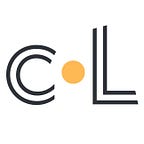The Alliance for Financial Inclusion Selects cLabs as a Finalist for the AFI Annual Fintech Showcase
For cLabs’ leadership with microwork in Kenya, in collaboration with Appen and Toca
The Alliance for Financial Inclusion, a member network of Central Banks and regulators from over 80 countries, recognizes cLabs at the AFI Annual Fintech Showcase for their accomplishments enabling access to microwork and blockchain-enabled payments from the safety of their homes. The recognition highlights the ease-of-use of Celo’s blockchain platform, bringing mobile-first technology to a variety of phones in low resource settings.
The AFI Annual Fintech Showcase recognizes transformative solutions that support and scale quality financial services. This year cLabs has been selected as one of the finalists of the Showcase, with a mobile microwork application, integrating a mobile-first cryptocurrency as a payment rail, that gives anyone in the world with a smartphone the opportunity to earn money from the device they have in their pocket. The application has been developed by Toca and cLabs, in partnership with the AI training platform Appen.
“The COVID-19 pandemic has challenged FinTech innovators to develop solutions which can provide a lifeline to vulnerable populations at a time of acute economic dislocation. However, valuable learnings and practices developed and implemented prior to the global pandemic are a great foundation for further innovation. We are pleased to receive a strong response to the showcase this year from global innovators with practical solutions to share with AFI’s membership, which translate into significant contribution to a several Sustainable Development Goals (SDGs), such as SDG 1- No Poverty, SDG 5 — Gender Equality, SDG 17 — Partnerships for Goals,” said AFI Executive Director Dr. Alfred Hannig.
COVID has accelerated the need for alternative forms of work, including microwork
According to the International Labor Organization (ILO) full or partial COVID19 lockdown measures have affected nearly 2.7 billion workers, or 4 in 5 of the global workforce. Such measures are expected to continue to impact the global workforce — and economy — for at least another 12–18 months. Not everyone in the workforce is able to continue performing their jobs from home, under lockdown, or have been able to keep their jobs.
Meanwhile the market for AI training microtasks was $9B in 2019, projected to be $24B by 2023 and the industry has a significant, and increasing, unmet need for work providers or contractors. Existing online work platforms are designed for those with access to a computer — this requirement excludes those that need access to work most, and hampers the growth of the AI training industry that needs the workers. According to the GSMA, by 2025, 72.6% of internet users (or 3.7 billion people) will access the internet solely through their smartphones.
cLabs and Toca have created a blockchain based mobile microwork application that gives anyone in the world with a smartphone the opportunity to earn money from the safety of their home. The project builds on momentum in the microwork industry with two innovations:
- Creating a smartphone app to reach the billions without access to computers
- Integrating a mobile-first cryptocurrency as a payment rail to reduce transaction costs and reach places underserved by existing payment rails
This is the 1st attempt of matching micro-work with integrated micro-payments in a way that is scalable, cheap and fast, allowing users to cash out their funds without paying large fees or waiting to accumulate considerable amounts.
The application has been tested in 3 countries and is currently underway to be scaled. The tests have revealed the high demand for ad-hoc ability to earn funds from one’s smartphone, as a way to monetize on time spent commuting, in between classes for students or simply as an alternative to supplement current income. The ability to do so from the safety of one’s home has been considered an important feature. In addition the integration of blockchain enabled micro-payments has been shown to reduce the cost of international money transfer by up to 95% compared to current methods.
The recognition from AFI will facilitate the team’s pathway to scaling the project beyond the initial focus countries. The team sees this solution as a key component of increasing financial health and resilience for users. With 20% of adults in the US having lost their job or working reduced hours since March, a smartphone based AI training application can mean the difference between being able to afford groceries and not.
About cLabs
cLabs, a team distributed across 21 countries, started Celo in 2017 and is one of many contributors to the open source project.
About Celo
Celo is an open blockchain platform that makes financial tools accessible to anyone with a mobile phone. The novel proof of stake network enables mobile-first access to DeFi and dapps. Celo’s ultralight client is over 700,000x lighter than other networks and enables any smartphone, even with limited internet connectivity, to quickly and easily sync with the network. Its open source technology can be leveraged to build an ecosystem of powerful mobile applications, ranging from easier cash transfer programs to peer-to-peer lending, international remittances to digital assets and wallets. Visit celo.org for more information.
About AFI
AFI is the world’s leading organization on financial inclusion policy and regulation. A member-owned and member-driven network, AFI works on empowering policymakers to increase access and usage of quality financial services for the underserved through formulation, implementation and global advocacy of sustainable and inclusive policies. AFI members are central banks and other financial regulatory institutions from more than 80 emerging and developing countries, where the majority of the world’s unbanked reside.
